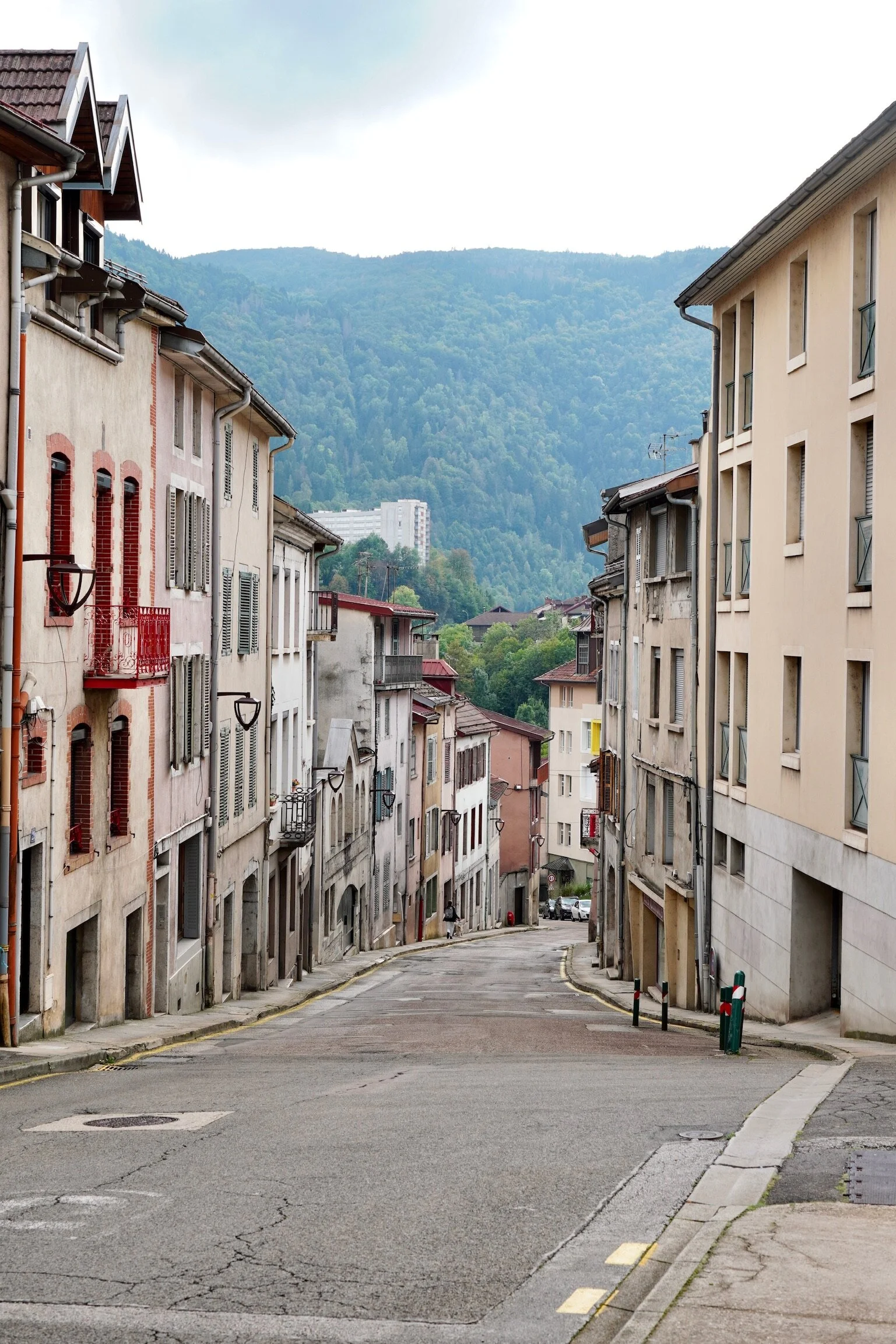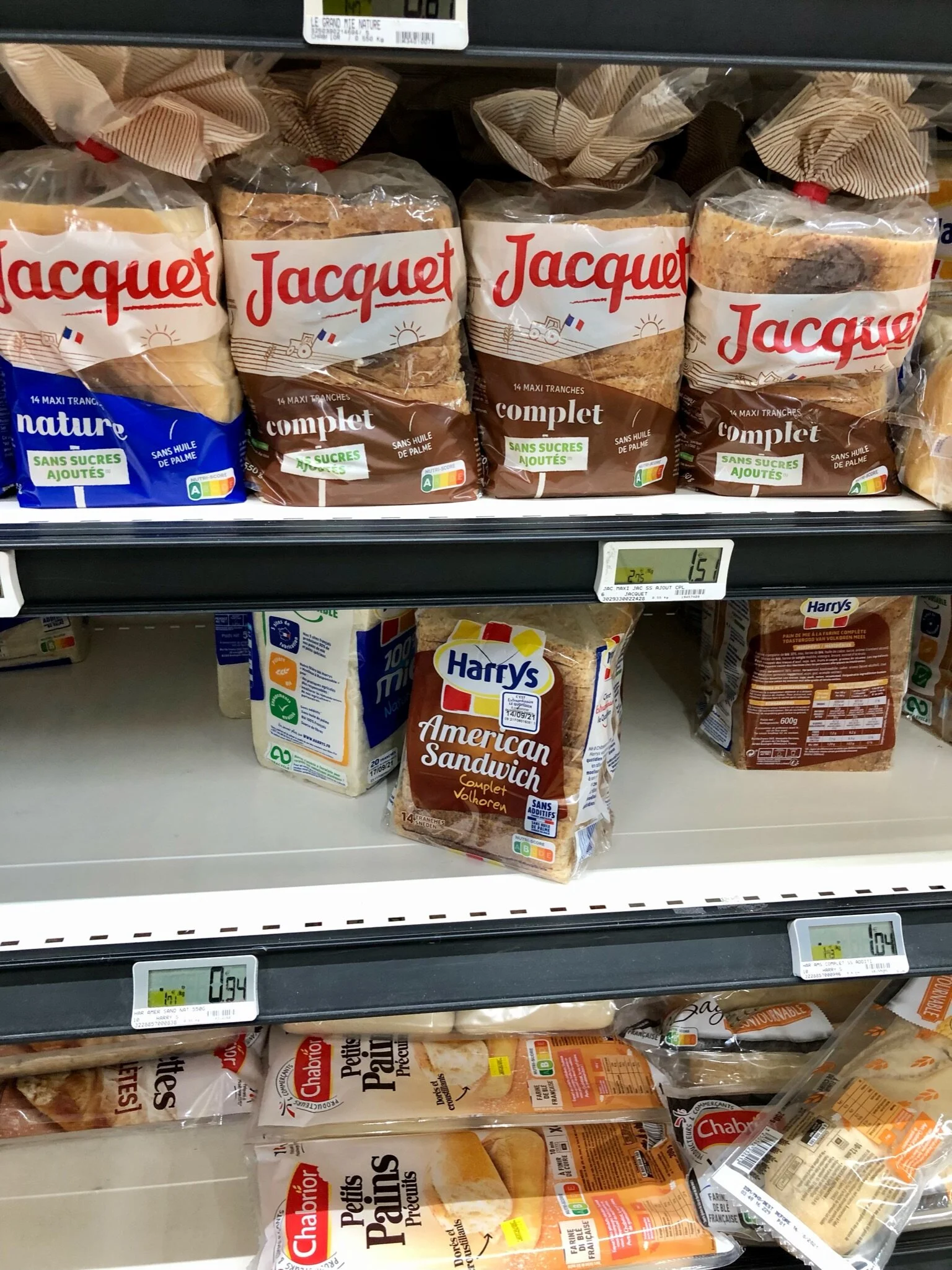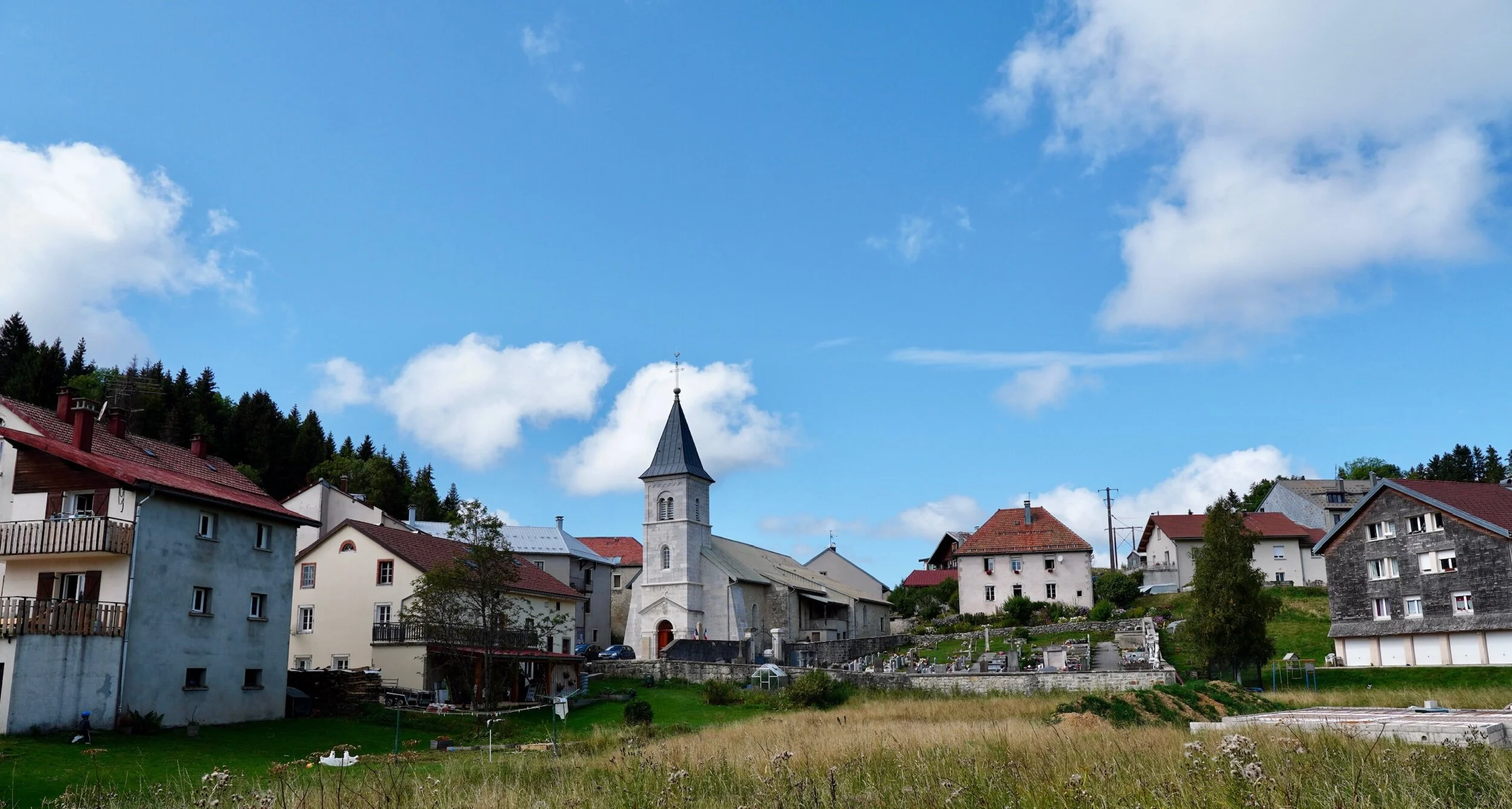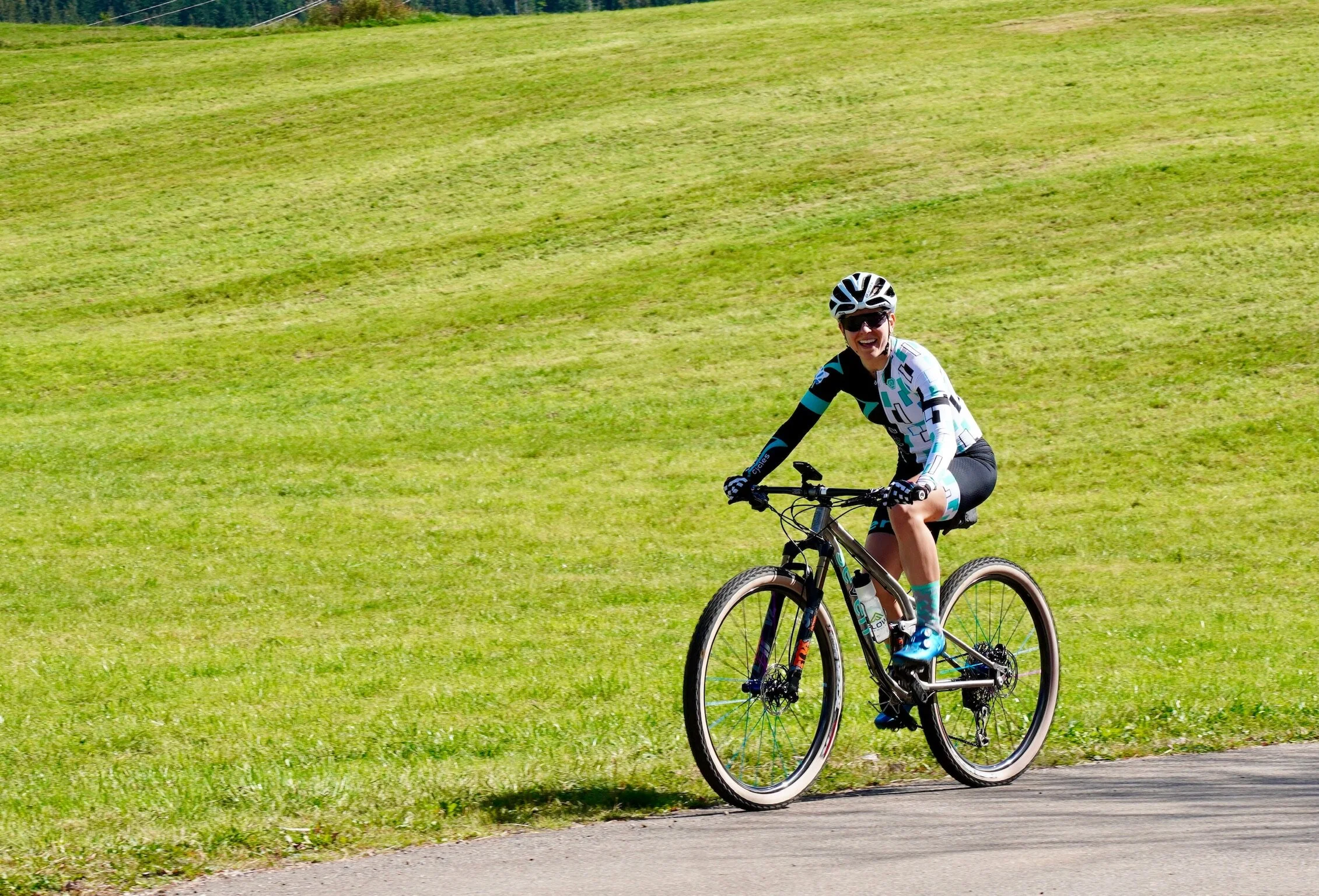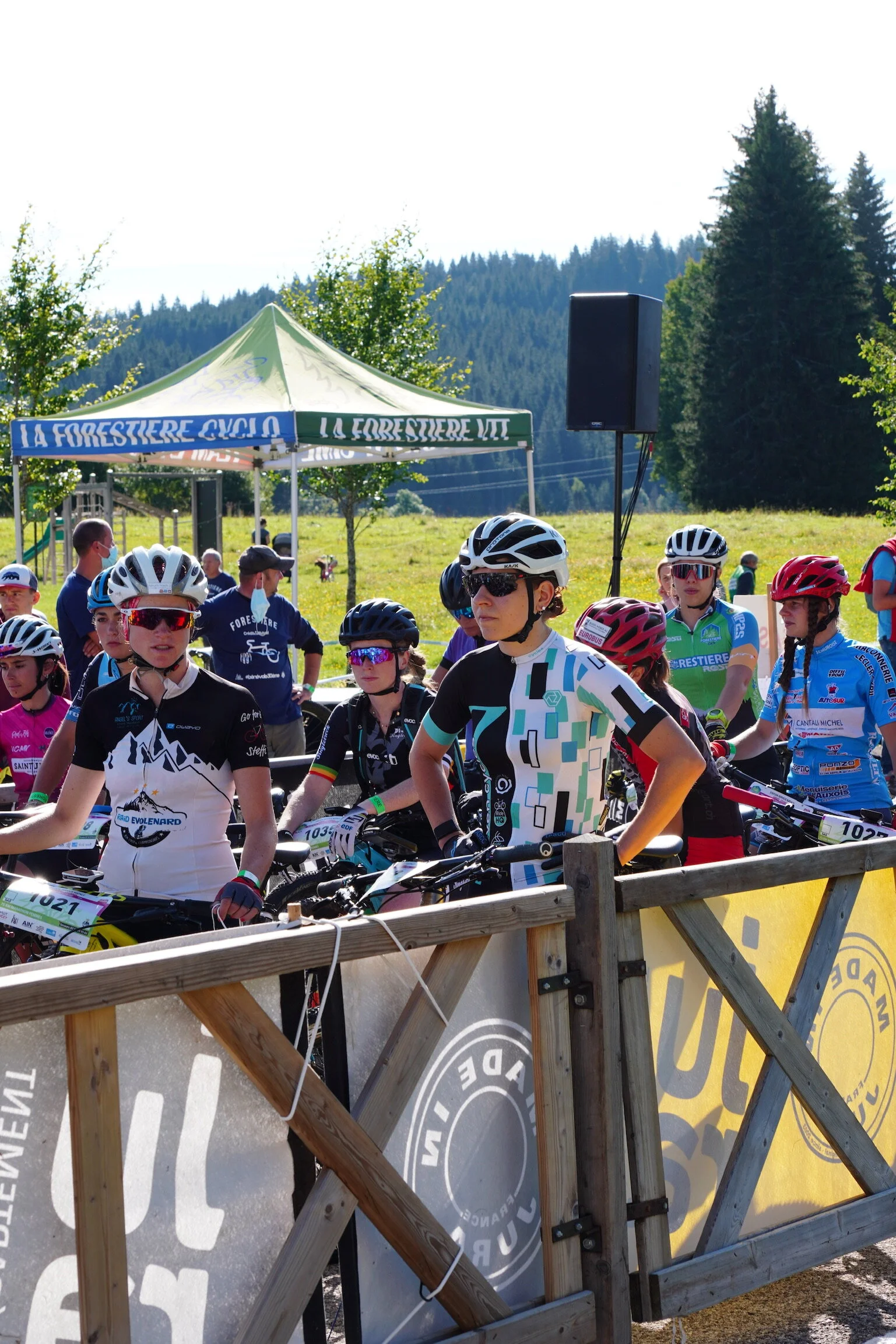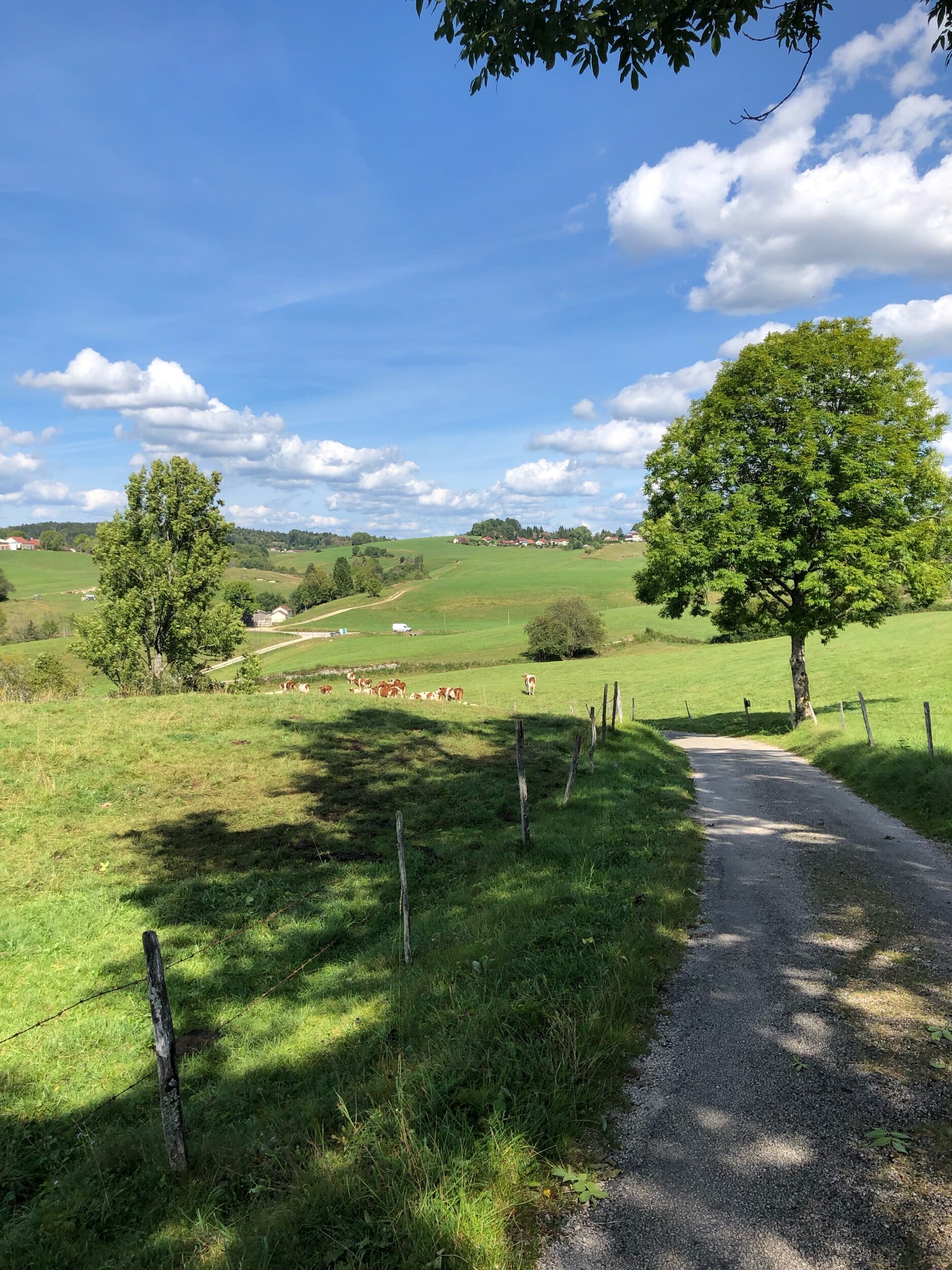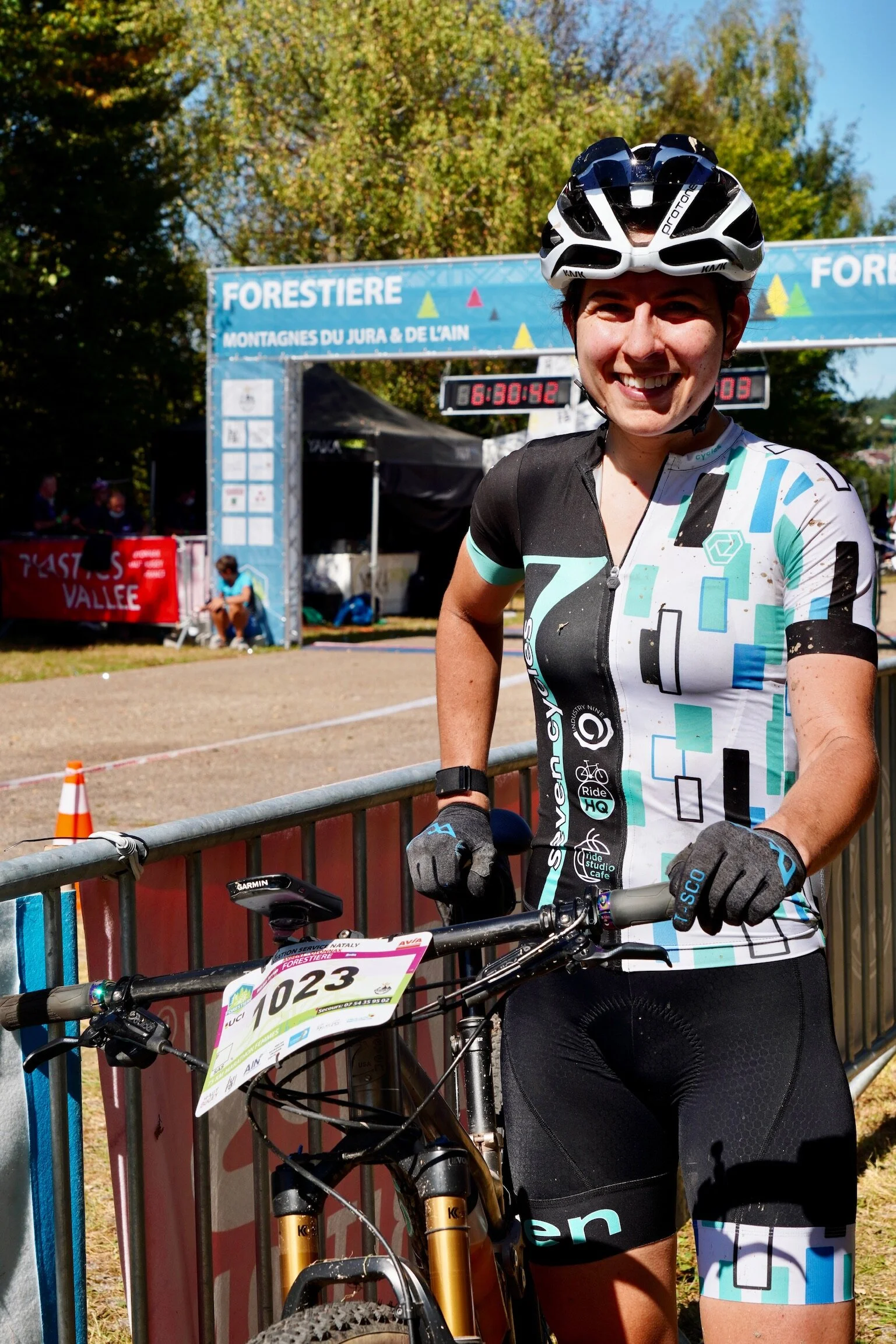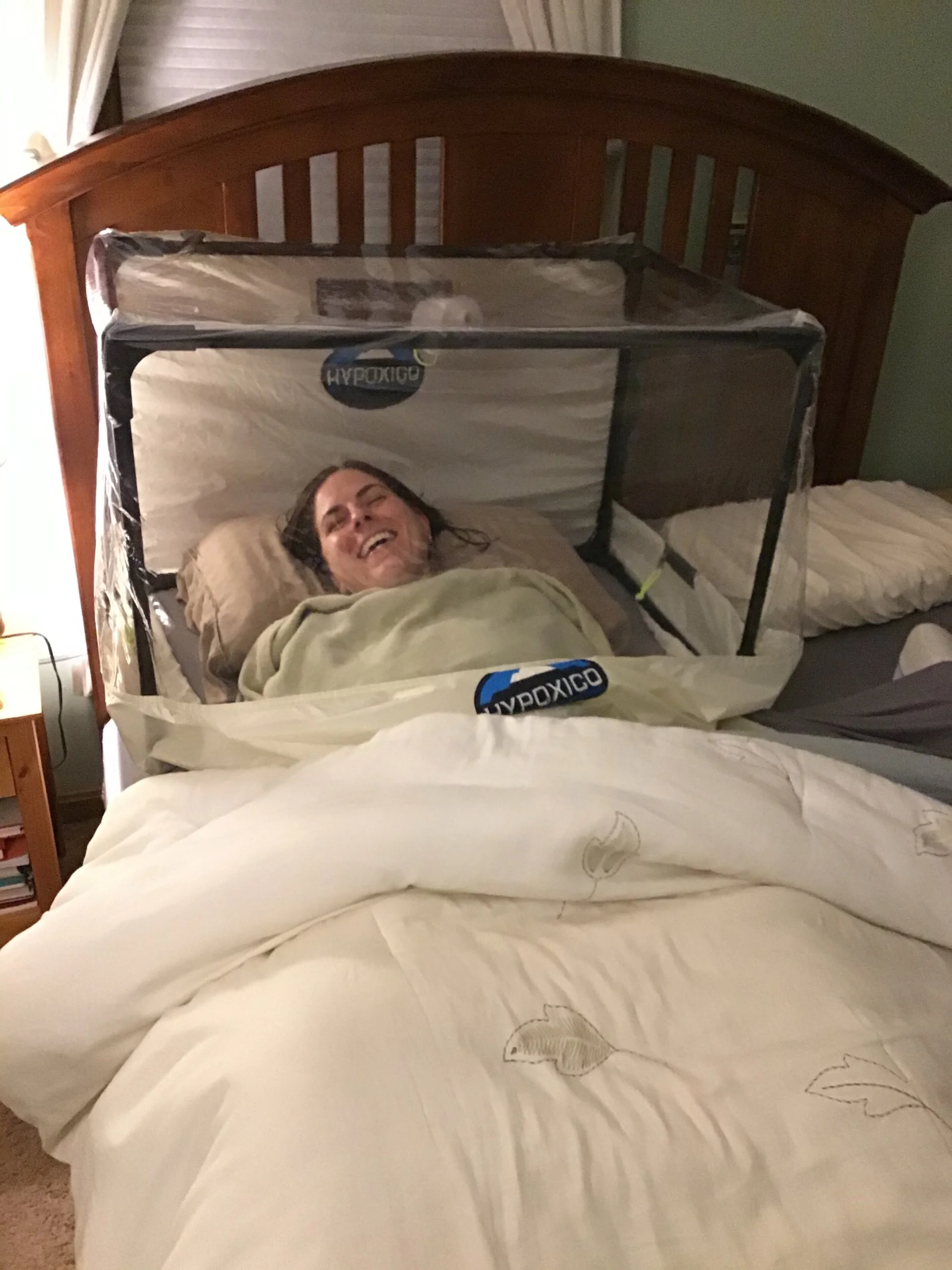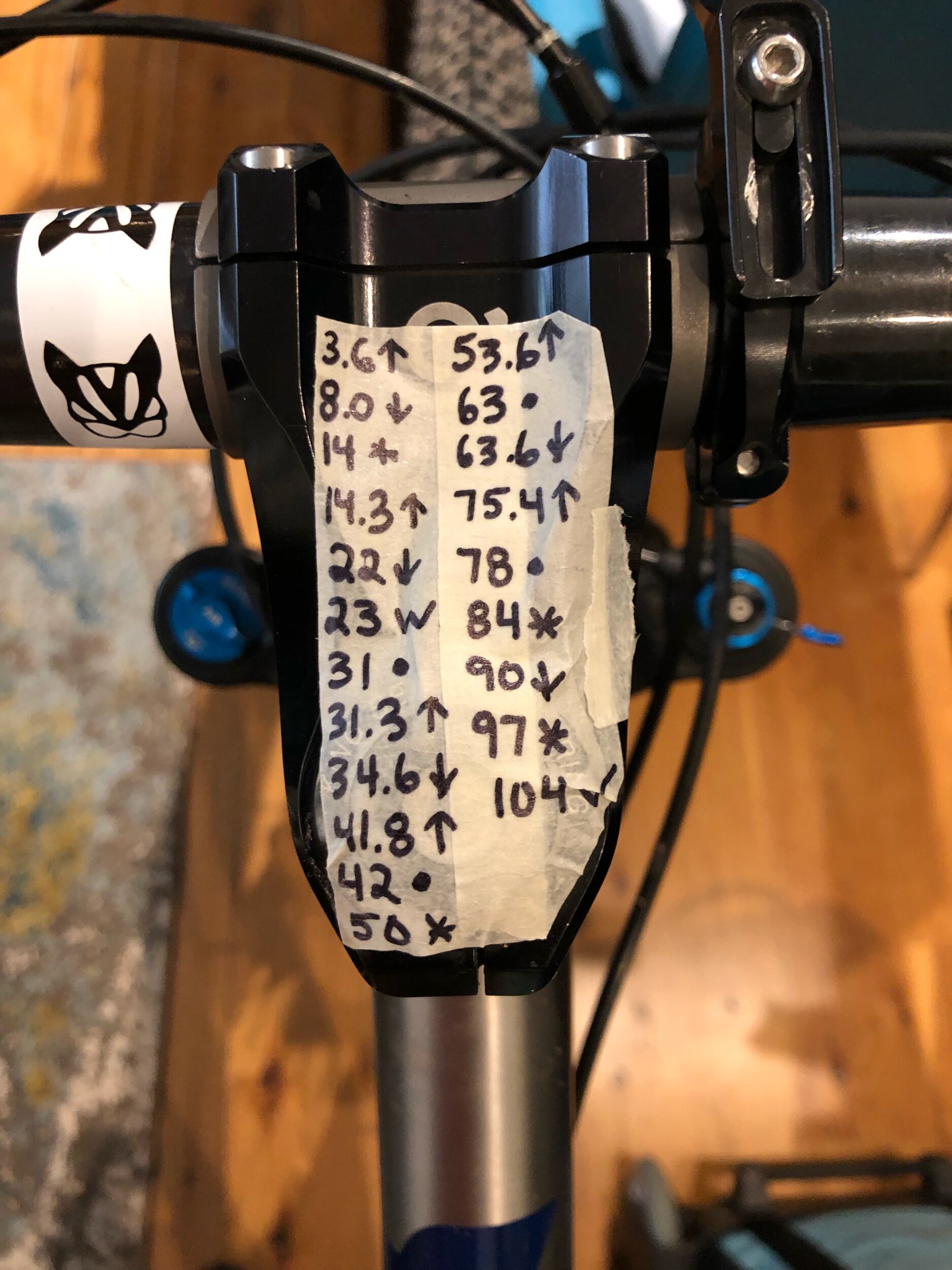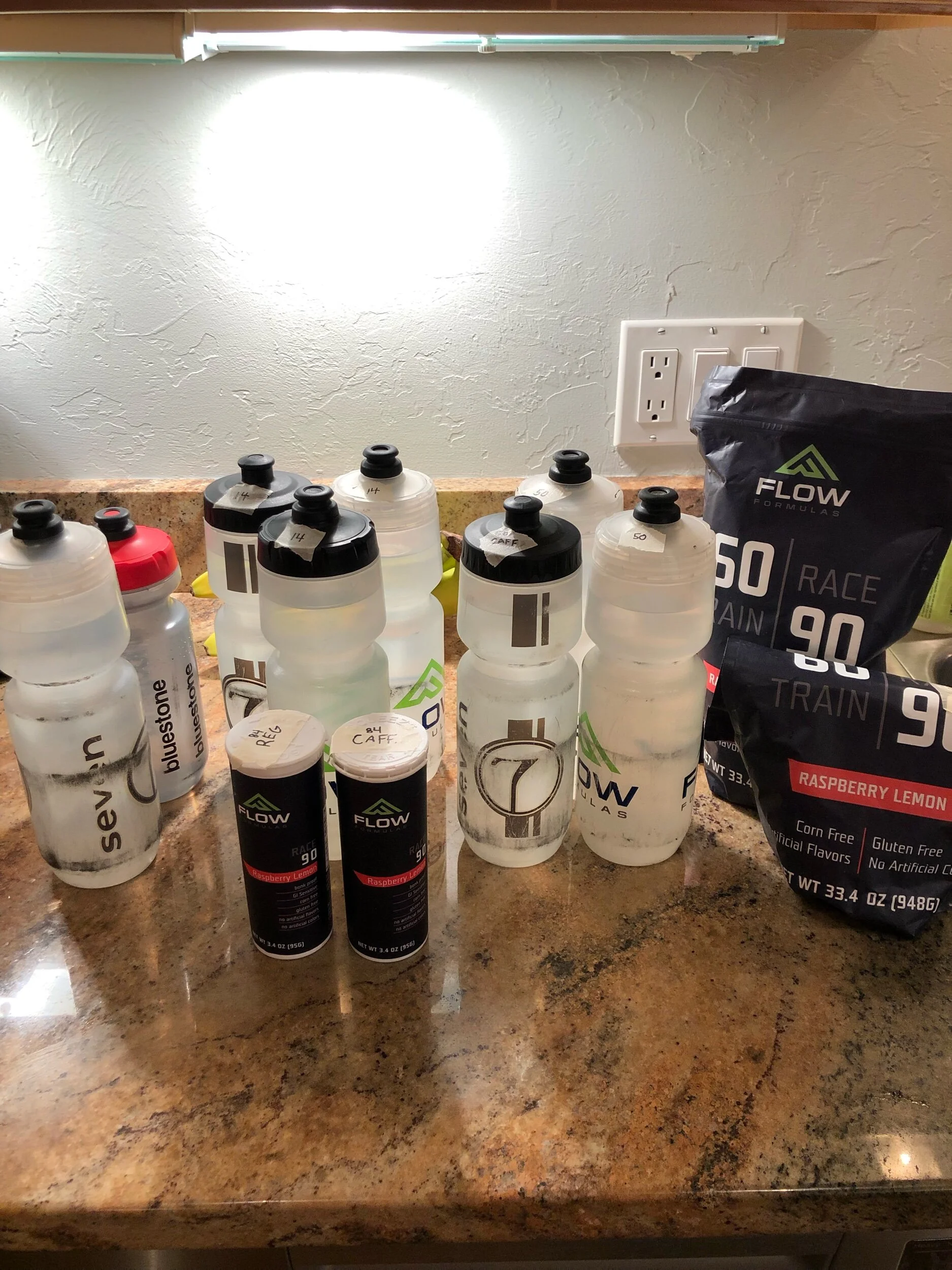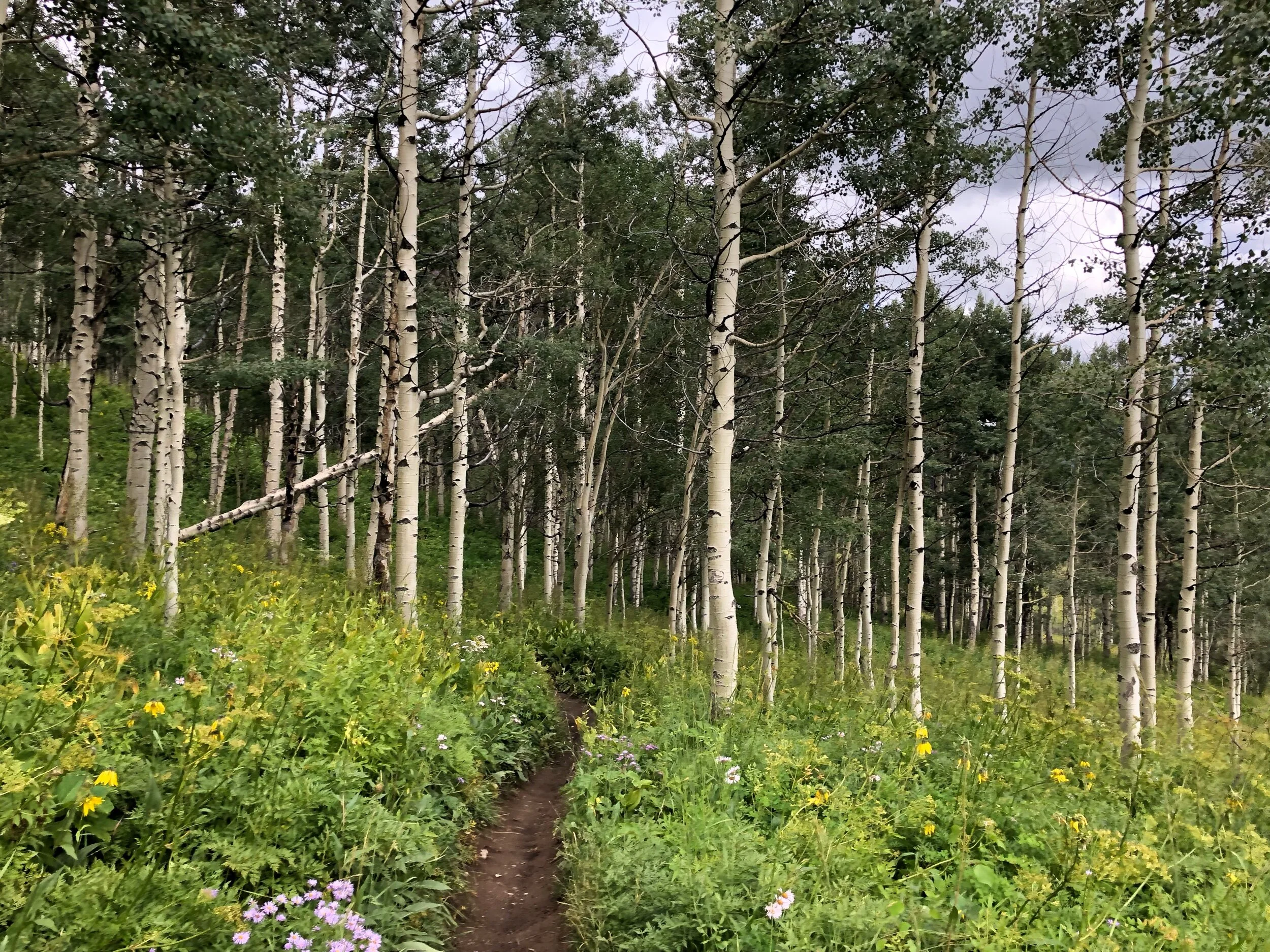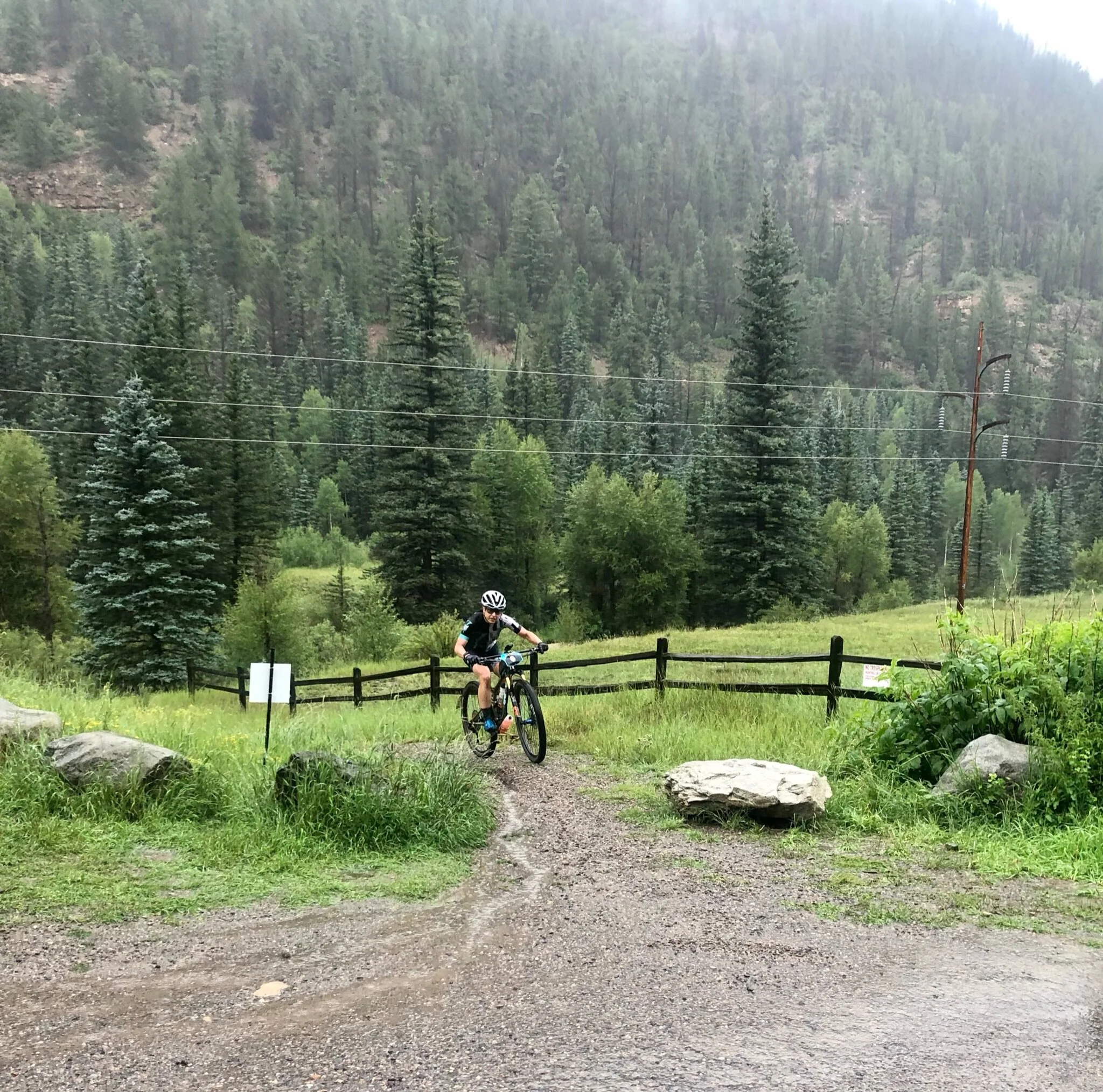France has always been a special and magical place in my mind. Both my mother and father come from French Canadian families, and my genealogy traces back to King Charlemagne. It seems only appropriate, then, that my first European bike race would be in France. La Forestière UCI Marathon MTB race is part of the UCI Marathon MTB Race Series, the largest marathon race series in the world. With my 2021 season nearing its end, this trip to Europe and this race felt like a milestone, or rather the bookend of a successful and exciting return to racing.
Expectations and Preparations
I've heard that European bike races and racers are incredibly different compared to their American counterparts. More specifically, I was told to expect my competitors to be stronger and more cut-throat, the race course to rival the most technical I've ever ridden, and the fans and community to be overwhelmingly open and welcoming to cyclists. Besides the "welcoming to cyclists part", I'll admit the rest made me quite nervous. As someone who is comfortable racing in the US, I was nervous about how different European racing would be. Surprisingly, I found that the gossip was true in some ways, but in other ways it was not. At the end of the day, there's a thread of community that weaves through all cycling experiences and transcends cultural differences. Once you're in the pain cave, it doesn't really matter what country is listed on your passport.
This race required a LOT of preparation; not just fitness but also travel arrangements. Navigating everchanging international travel regulations during the Covid pandemic was an adventure, to put it mildly. Frankly, it was more of a test of internet searching capabilities than anything else. The night before our flight, I was proud and confident that I had completed all necessary paperwork and forms and was enjoying the last supper before the inevitable travel chaos. While re-reading a translated version of a race email, I was reminded that a "Health Pass" ("certificate sanitaire") was required for any public gatherings/events, which I had seen over the past couple weeks on the race website. Unfortunately, my poor translation skills had me convinced that my CDC Vaccination card was my Health Pass. It wasn’t. A Health Pass is something you have to apply for, which we did at 9:30pm the night before our flight. The fun part was that even with online English translations, there was still one field in the form I didn't understand, so rejection was highly probable. Luckily, a negative PCR Covid test can serve as a temporary Health Pass, which meant we had to find a place in a small French village that performed PCR testing. That proved to be a fun adventure all on it's own (I'll spare you the rambling details).
PLANES, AUTOMOBILES, and GRoceries
The flights from Boston to Geneva were relatively uneventful. We arrived safely in Geneva; however, my bike did not. While our flight connected in Frankfurt, Germany, the bike took its own route through Munich. Of all the flights I've taken with my bike, this is the first time we ever had trouble. Navigating an international airport in perfect conditions after a red-eye flight is stressful on it's own, but trying to coordinate retrieval of a missing bag adds an extra layer of fun. Of course, I nightmare that this is going to happen every time we travel, but the travel gods waited until this trip. Long story short: we waited in the Geneva airport for a few extra hours for the bike to arrive.
Our rental car was a hybrid Jeep Compass, which was smaller than the minivan we actually reserved, but spacious enough to serve its purpose for our race weekend. In hindsight, we were lucky enough to have a non-sedan at all, given the current state of the rental car industry (you know what I'm talking about if you've traveled and rented a car recently). This was Joe's first time in Europe, which meant it was also his first time driving in Europe. I only took taxis on my European business trips, so I was absolutely useless for his mental preparation for this experience.
Did you know that French drivers are nuts? I mean this in the most polite way possible. The mountain roads (and for that matter, the village and city roads) were the narrowest, twistiest, non-guardrailed-est roads I've ever seen. And that's saying something, given that we live near Boston, MA. Moreover, the drivers were the wildest, fastest, most reckless drivers we've ever encountered. One second we were driving along at what felt like a reasonable speed for the current road conditions and the next second an old French couple in their tiny car with was tailgating us, only a few centimeters away. No worries, though, because French folks have no problem passing on any road, especially on blind corners. At one point, a utility van passed us so fast that I swear I saw daylight under his wheels when he hit the switchback in front of us.
It's worth noting that I was perpetually car sick this entire trip (if I'm being honest, this is almost not an exaggeration) due to the erratic driving and winding roads. To add to the driving fun, everyone (other drivers, people on sidewalks, kids in strollers) stared at us like we were exotic creatures in our hybrid Jeep that sounded a little like a spaceship.
Our Airbnb was in Sainte-Claude, a mountain village known for its pipe manufacturing and diamonds. If you like pipes, this is the place for you.
[Imagine a witty caption here]
Our Airbnb was in an old stucco building, typical of this area. You know, the kind with large windows and wooden shutters and no window screens (and no bugs!). It was plenty spacious and right in the heart of town. Plus, it was about a half hour from the race start and finish.
Looking down the extra steep hill toward our Airbnb.
We learned that people in Geneva speak English really well. People in the French countryside, however, do not. I did all of the talking while Joe listened patiently. His quiet assurance kept me feeling a bit more sane and confident this whole trip. Plus, he did all the driving, for which I was incredibly thankful.
I learned French in High School for four years and was the president of the French Honor Society, and several people assured me that a high school comprehension level would be sufficient to “get by” in France. Just in case, I practiced saying "I'm sorry, I don't speak French very well. Do you speak English?" Unfortunately, when it came time to actually say that phrase to someone other than myself, it usually came out something like "Sorry. I don't well speak French….English?". Luckily, it got better as the trip progressed, but I'm pretty sure I left a few grocery store cashiers, a bike mechanic, and an Airbnb host more than a little confused.
One of my goals for this trip was to try and keep as much of a normal race routine as possible so I could "control the controllables" in an otherwise extremely foreign environment. That meant we were going to cook most of our meals—as we usually do during race weekends—rather than indulge in local cuisine. This made grocery shopping quite an experience. Did you know that French markets don't refrigerate eggs (or milk!)? Yep, neither did we as we walked around a large market several times, too nervous to ask where the eggs were. Not a great situation when you're already stricken with hanger. Also, it turns out that peanut butter isn't really a thing. Neither is almond milk. And it would have been easier to find bricks of solid gold than fresh veggies, but we did our best.
At least they had American Sandwich bread.
Just like any other race, I planned to pre-ride a portion of the course the day prior to the event. The La Forestière course is unique because it starts in a tiny mountain village, Les Moussières (home to ~200 people), and ends several miles (or rather, kilometers!) away in a larger village, Arbent. This point-to-point course takes racers through quaint mountain villages, farmland, and forests.
I decided to pre-ride the first 10 miles (the start loop) because I like to gain a sense for the first 30-45mins of pain. There wasn't a GPX file for me to follow—or maybe there was and it eluded me and my poor translation skills—so I had to study a PDF map of the course beforehand. It only took two minutes for me to get lost the first time. Luckily, that area of France is beautiful and worth pedaling back up a steep road that I just mistakenly whipped down. I discovered there were multiple mountain bike events taking place that day that shared portions of the La Forestière course, so I ended up riding a part of an Enduro course (what a blast!), then rode back up that same part of the Enduro course when I was told I was off course, only to take a wrong turn a few miles later on a course that was meant for an organized, multi-day MTB ride. During this time, I rode through multiple large cow poops, had an almost-head-on collision with a cow, and met a really friendly e-MTB rider who told me all about his upcoming trip to Los Angeles once he found out I hailed from America.
Lots of smiles on my face; a little cow poop on my wheels.
The next stop of the day was Arbent where the race expo was taking place so I could retrieve my race number and attend the UCI racer’s meeting, which was conducted entirely in French. At the end of the meeting, the UCI official (a very kind Norwegian man) snagged the microphone and asked if anyone in the crowd would now like to hear all of the announcements in English. Hesitantly, Joe and I raised our hands and fully expected to be the only two people with arms raised. Luckily, one fellow attendee also raised his hand. I then proceeded to ask approximately half of all the questions of everyone in the meeting—one of which was "will the course be better marked than it was today?". No shame; I wanted to make sure I was fully prepared because surprises on race day are "pas bon."
Now, for the part you really came here to read about...race day.
The big day
The theme of race morning was "uncertainty". Everything was in French—the announcements at the start line, the road signs indicating detours because of the race, the instructions for racers—so I was mostly clueless most of the time. When it came to lining up for the race, I just tried to follow other racers with ponytails (important note: there are several more ponytailed-men in France than in the US...so, that was fun).
Additionally, I didn't know anything about my competitors, unlike in domestic races. This meant that I had no idea who, if anyone, was similar in skills and speed as me, and whether I should try to keep up with the lead group at the start. I think, in some ways, this is an advantage for the mental side of racing because I didn't have the opportunity to "write the story" before the story unfolded, which is something I find myself doing in many of my races. As a mental health advocate, I believe this topic deserves it’s own blog post and perhaps I’ll explore this more during my off season; for now, suffice to say that ignorance might have been bliss on this day; I still haven’t decided.
Really focused on trying to understand the French announcements or wondering how many cow poops I was going to hit during the race? We’ll never know.
When the race began, the pace was akin to an XCO start (note: an XCO race is ~90 minutes but this was an XCM and was likely a ~4 hour race). I stuck with the lead group for the first several miles at a blazing pace and was pushing way too hard for the race start. Immediately I faced the reality of an insufficient warmup (I was so worried I would misunderstand the announcements and miss staging that I cut my warmup too short). As we snaked through country roads and then snuck into doubletrack trails, the pace felt like a rude slap in the face, which was ironic because I then literally got slapped in the face by a giant pine tree branch. This branch was nearly my undoing, as it almost knocked me off my bike while wrapped around my head. Let me tell you, no amount of training prepares you for something like that, although I suppose Joe could start hitting me with tree branches or pool noodles while I'm on the trainer this Winter.…
Inevitably, the first hour of the race put me in a dark place. We were also slightly at altitude (~3500 feet), which is nothing compared to the Telluride100, but still more than the 350 feet at which I normally train. I got passed by a few women and questioned why we traveled so far just for me to suffer so intensely. This nearly broke my spirit but I remembered that positive thinking had kept me afloat in past races and had successfully pulled me from the depths of the pain cave. So, I started cheering for myself and singing some of my favorite upbeat songs (the usual Justin Timberlake, Van Halen, Yellow Card), which then turned into me trying to translate them into French.
After about an hour, I settled in and found my rhythm (both physically and metaphorically, since I was rocking out to French translated songs in my head). The climbs on this course were no joke. Several were hike-a-bike, while others were just incredibly technical. One intimidating climb was about 4 minutes long and the first half was steep and rocky while the second was even steeper and full of enormous roots. Lucky for this New England girl, I was able to track stand and maneuver my way through the entire climb while everyone else around me was walking. In fact, I even heard a few men behind me shout "Bravo! Bravo!". Admittedly, there’s nothing quite like a French-accented morale boost to add a few extra watts mid-race.
A magical glimpse of the rooty climb, taken from a French photojournalist’s blog. This is not actually me in the photo; I didn’t lie to you—I really did clean it. (Olivier Baert)
One of the most incredible parts of the race was the number of fans lining the course. Old folks, young children, and everyone in between gathered along the roads and intersections to offer encouragement. "Allez! Allez!" was the common cheer, which I knew translated to "Go! Go!" but it sounded way cooler. When I passed fellow racers, I used the same phrase to encourage and also to let people know I was behind them because I couldn't remember how to say "coming up behind you" or "passing on the left". To my surprise, even with my strange accent, I seemed to fit right in.
A 6+ mile climb was one of the defining features in the second half of the race. Most of the climb was exposed, with strong midday sun and dry, loose gravel making a particularly difficult grind even more grueling. Interestingly, I settled into a rhythm and steadily passed several fellow racers, even one woman! Finally, I felt confident, strong, and at-home in my feeling of suffering.
We rolled through thick forests and wide open countryside with small mountain villages in the distance. At one point, I had to remind myself to look around and soak in the amazing views, which when paired with the strenuous race effort, took my breath away. A few of the aid stations were nestled into quaint mountain villages—the kind that have just a few houses, a municipal building, a post office, and a beautiful old church. At each aid station, Joe met me with his trademark smile and warm encouragement. As a side note, I am especially appreciative and proud of Joe for navigating the French countryside and successfully arriving at all aid stations on time. He confided later he did everything in his power to avoid all human interaction so he didn't have to risk talking. I figured this was a worthy plan because he kept inadvertently exclaiming "Ciao!" and "Arrivederci!" and "No hablo espanol..." while we tried practicing French away from actual French speakers (in case you don’t know, none of these are French phrases).
Look! Cows!
In the last third of the race, a woman in a magenta jersey flew past and I thought for sure I’d never see her again. She distanced herself on a long climb, which crested and transitioned into one of the steepest, loosest descents I’ve ever encountered in a mountain bike race. The trail was loamy in some sections and full of softball-sized rocks in others, so it required braking control, incredible balance, and a pinch of recklessness—the perfect recipe for this New England mountain biker. Eventually, I clawed my way back to the magenta-clad racer as she cautiously slipped her way down the rugged path while I bombed down with glee. When we turned onto a back country gravel road, I decided to surge past her and not look back.
Interestingly, the surge prevailed and I raced solo for the last 30 minutes. The last mile included twisty, technical singletrack with a few sneaky roots and rocks. While I pumped and flowed through most of the trail, I naturally suffered a minor crash right at the end while I was distracted thinking about crêpes and stroopwaffles. Luckily, I rode away within a minute and without losing any places.
Crossing the finish line in 15th place after completing almost 44 miles in just over 3:45 was a massive achievement for me. I survived the intimidating European competitors and terrifying pine trees. More importantly, I completed my first ever European race. No matter what comes next, a piece of my heart will always be wandering the French forests and countryside.
While driving home, Joe and I decided to find a local waterfall and swimming hole to cap off an already incredible day.
That evening, while waiting for our pizza (yes, we ordered pizza in France) Joe asked me what a "soigneur" was because he had seen and heard this French word several times over the past couple days. Google taught us that the literal French translation is “caretaker” and in cycling, it is an assistant who is responsible for feeding, clothing, massaging, and transporting bicycle racers. In that moment, we both realized that Joe is my soigneur! However, I'll probably never call him that because it feels insulting to call him anything other than my husband. More importantly, he's working for free and I don't want him to get any funny ideas.
The Adventure Continues…
As if a 15th place finish in my first European race wasn’t news enough, I also learned that I was selected to race for Team USA in the 2021 XCM World Championship Race in Elba, Italy. USA Cycling made their decision before La Forestière, but it is certainly gratifying to know that a 15th place finish this weekend means I'm in the mix. I’m overwhelmed, overjoyed, and incredibly humbled by this news, but that’s a long story for a different blog post.
With Worlds on the horizon, I realize my intuition was indeed correct when I declared this trip to France a milestone. However, this wasn’t quite the bookend I expected. Perhaps rather than a bookend, this is the start of a new chapter. A chapter full of adventures where we get lost, get found, get tailgated, and get pizza in peculiar places. C’est la vie.




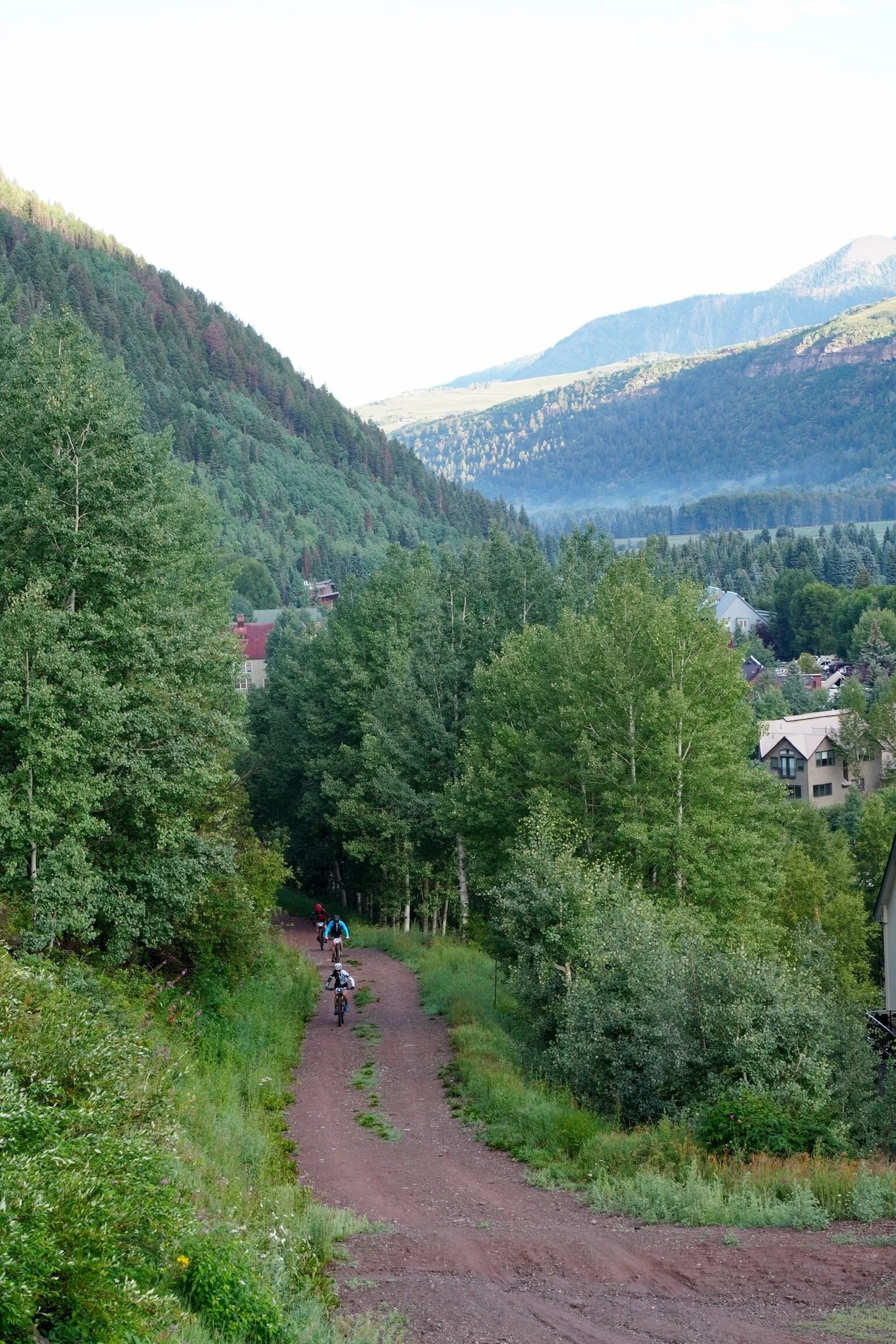
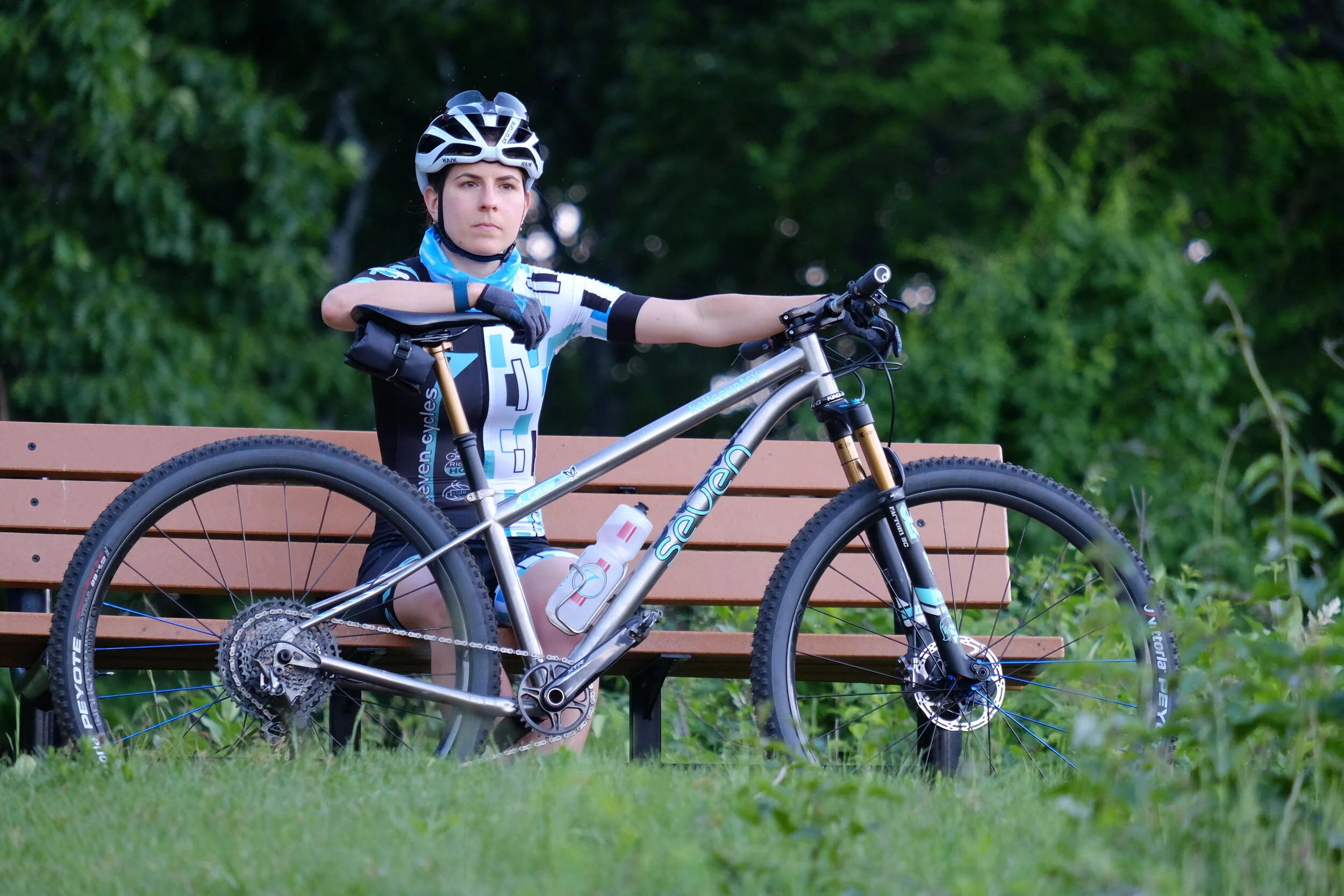
![[Imagine a witty caption here]](https://images.squarespace-cdn.com/content/v1/5cec6fa3fdcda30001c8da95/1632449668784-VKI4FRK2VNRVW1LX3MAO/IMG_0013.jpeg)
